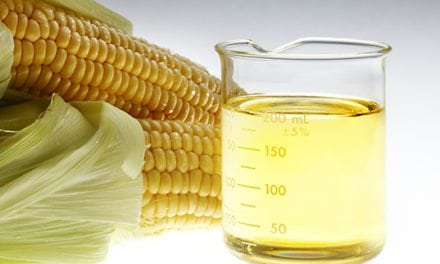The National Biodiesel Board (NBB)’s Member Company, Ag Processing Inc (AGP), testified before a tax-writing committee in the U.S. House of Representatives in support of the biodiesel tax incentive. The hearing was focused on the future of tax extenders in a post-comprehensive tax reform world.
“We urge Congress to renew the biodiesel blender’s tax incentive through 2018 at a minimum, while considering a multi-year approach. Doing so would drive new investment and establish market certainty for U.S. farmers, ranchers, petroleum marketers, blenders and fuel retailers,” said Cal Meyer, chief operating officer of Ag Processing Inc.
The committee heard from more than 20 witnesses over the course of four panels. NBB’s witness accurately pointed out that the biodiesel blender’s tax credit has helped achieved the desired goals of expanding domestic production of American energy resources and jobs here at home. The biodiesel industry supports roughly 64,000 jobs, $11.42 billion in economic impact and $2.54 billion in wages paid.
Biodiesel also adds value to other sectors of the economy, like agriculture. For example, biodiesel allows farmers to be more competitive in the global protein market, as demand for biodiesel supports U.S. soybean processing and export opportunities. Lastly, America benefits from fewer toxic pollutants and improved air quality thanks to increased use of biodiesel, which reduces particulate matter by 47 percent, hydrocarbon emissions by 67 percent and lifecycle greenhouse gases by 86 percent.
“The public policy benefits of the tax incentive are clear,” Meyer said. “These benefits, however, will be jeopardized without reinstatement of the biodiesel tax incentive.”
Made from an increasingly diverse mix of resources such as recycled cooking oil, soybean oil and animal fats, biodiesel is a renewable, clean-burning diesel replacement that can be used in existing diesel engines without modification. It is the nation’s first domestically produced, commercially available advanced biofuel. The National Biodiesel Board is the U.S. trade association representing the biodiesel and renewable diesel industries, including producers, feedstock suppliers and fuel distributors.
See below for Cal Meyer’s written testimony.
____________
Testimony of Cal Meyer, Ag Processing Inc (AGP)
On Behalf of the National Biodiesel Board
Submitted to the Ways and Means Committee,
Subcommittee on Tax Policy
Hearing on Post-Tax Reform Evaluation of
Recently Expired Tax Provisions
March 14, 2018
Good morning, Chairman Buchanan, Ranking Member Doggett, and Members of the Committee. Thank you for having me.
My name is Cal Meyer, and I serve as Group Vice President and Chief Operating Officer at Ag Processing Inc, an agribusiness headquartered in Omaha, Nebraska. I have been with AGP for more than 30 years and have worked in a variety of leadership roles during that time.
AGP, a member of the National Biodiesel Board (NBB), is pleased to present this testimony to the committee regarding the role of the biodiesel tax incentive in the continued growth of our industry and the resulting benefits for American competitiveness, job creation, and the environment. NBB is the leading U.S. trade association representing the biodiesel and renewable diesel industries, including producers, feedstock suppliers, and fuel distributors since 1992.
AGP is a leading soybean processor and refiner of soybean oil, and we have soybean processing and refining facilities in Iowa, Minnesota, Nebraska, Missouri, and one under construction in South Dakota. AGP has a large-scale export facility at Grays Harbor in Aberdeen, Washington, and grain facilities located in Nebraska, Texas, and New Mexico. Important to today’s discussion, AGP is a leading producer of methyl esters for biodiesel production, with over 170 million gallons of biodiesel production capacity in Iowa and Missouri. Across these facilities, AGP employs 1,100 people.
By means of background, biodiesel is a renewable, clean-burning diesel fuel made from a diverse mix of resources, including agricultural oils such as soybean, camelina, and canola oil, as well as recycled cooking oil and animal fats. Based on the performance standards established by law, the U.S. Environmental Protection Agency (EPA) has defined biodiesel as an “advanced biofuel”— meaning it reduces greenhouse gas emissions by at least 50 percent when compared to petroleum diesel.
Biodiesel is the nation’s first domestically produced, commercially available advanced biofuel. It meets a strict fuel specification set forth by ASTM International—the official U.S. fuel-certification organization. Biodiesel is primarily used in blends of 5 percent to 20 percent and does not require special fuel pumps or engine modifications. In fact, the majority of automobile manufacturers support biodiesel blends up to 20 percent in their engine warranties. Renewable diesel is a fuel made from the same feedstocks as biodiesel but using a different process—one more similar to petroleum refining. The resulting product (renewable diesel) is chemically indistinguishable from petroleum diesel but made from renewable feedstocks.
Biodiesel and renewable diesel are relatively new sources of energy. History has shown that well-crafted and efficient tax incentives can be powerful policy mechanisms to create jobs, achieve the nation’s energy objectives, and leverage private sector investment to promote the deployment and utilization of new energy resources here in the United States. This is certainly the case with the tax credit for biodiesel.
Federal programs, including the biodiesel tax incentive, have played a key role in stimulating growth in the U.S. biodiesel industry, helping biodiesel become the leading EPA-designated advanced biofuel in the nation. Together with the Renewable Fuel Standard, these successful federal policies have sent a positive signal to producers, marketers, and customers. The RFS has effectively opened up the petroleum diesel fuel market to renewable alternatives, and the tax incentive has provided the necessary economic driver to all segments of the value chain, including blending, distribution, marketing, and consumption. Without question, the biodiesel tax incentive has stimulated production. In 2004, prior to the enactment of federal tax incentives, our industry only produced 25 million gallons. When the incentives were first implemented in 2005, the United States produced roughly 112 million gallons; now, the market has climbed to as high as 2.9 billion gallons annually.
The public policy benefits of the tax incentive are clear:
Jobs Are Created, Economies Grow. With biodiesel plants nationwide—from California to Iowa to North Carolina—the biodiesel industry already supports roughly 64,000 jobs, $11.42 billion in economic impact, and $2.54 billion in wages paid. In many rural areas of the country, biodiesel plants are a driving force of the local economy, supporting the employment of technicians, plant operators, engineers, construction workers, truck drivers, and farmers.
Value Is Added to Other U.S. Economic Sectors, Such as Agriculture. Biodiesel provides very strong soybean price support. Biodiesel importantly allows U.S. soybean farmers to be more competitive in the global protein market, as demand for biodiesel supports U.S. soybean processing and export opportunities. Demand for biodiesel creates incentives to expand U.S. soybean processing capacity, such as our recent capital investment in a large-scale soybean processing plant in South Dakota. Policy certainty is one of the most important factors in making significant investment decisions in value-added businesses, such as biodiesel.
Biodiesel Helps Americans Put Wastes to Work. Biodiesel is made from an increasingly diverse mix of resources such as recycled cooking oil, plant oils, and animal fats. Biodiesel reduces wastewater by 79 percent and hazardous waste by 96 percent as compared to petroleum diesel. A latte to-go uses 26 times more water than it takes to produce a gallon of biodiesel. The lifecycle for petroleum diesel generates roughly five times as much wastewater flow as the lifecycle for biodiesel. Notably any hazardous wastes from the biodiesel cycle are actually indirect waste flows associated with the production of diesel fuel and gasoline used in production.
Biodiesel Offers Benefits That Petroleum Cannot. Biodiesel blends increase lubricity and cetane of diesel fuel—two necessary properties that diesel fuel lacks. Biodiesel blends provide performance characteristics such as fuel economy, horsepower, and torque similar to petroleum diesel while improving other characteristics, extending the life of diesel engines.
America Benefits from Improved Air Quality. Biodiesel reduces particulate matter by 47 percent, hydrocarbon emissions by 67 percent, and lifecycle greenhouse gases by 86 percent. The health benefits of reducing these emissions include reduced mortality of adults and infants, reduced cancer risk, reduced chronic and acute bronchitis, reduced acute myocardial infarctions, reduced cardiovascular hospital admissions, reduced upper and lower respiratory symptoms, reduced exacerbation of asthma, and reduction in lost work days. Biodiesel’s reduction in particulate matter alone equates to preventing more than 500 premature deaths annually. Additionally, biodiesel is nontoxic, biodegradable, and benefits water quality. The EPA has recognized its environmental benefits by classifying it as an advanced biofuel, making biodiesel the leading commercial-scale U.S. fuel produced nationwide to meet the agency’s criteria.
Energy Security Is Enhanced. Biodiesel is diversifying our fuel supplies so that we are less dependent on global oil markets that are influenced by unstable regions of the world and global events beyond our control. Despite increased domestic oil production, consumers will remain vulnerable to volatile international oil prices without diversity and competition in the fuels market. Approximately 3.5 percent of the total diesel transportation fuel market, which is roughly 60 billion gallons, is biodiesel.
We believe it is important for all stakeholders in the transportation fuels industry to have policy certainty—not only for the farmers and producers, but also the blenders and customers who decide to purchase the fuels. We appreciate the strong support of petroleum marketers and retailers, who have helped spread the use of these fuels across the nation.
So where do we go from here? Biodiesel producers and blenders urge the Congress to perform an across-the-board, even-handed evaluation of federal tax treatment of all energy resources. In 2017, Congress moved ahead with a comprehensive tax reform bill that affirmed the permanent tax rules enjoyed by conventional energy resources. Although the subsequent limited, retroactive extension of the biodiesel tax incentives in February 2018 was a useful first step, we urge Congress to renew the biodiesel and renewable diesel blender’s tax incentives through 2018 at a minimum, while further contemplating a multi-year approach to biodiesel incentives that would drive new investment and establish market certainty for U.S. farmers, ranchers, and petroleum marketers, blenders, and fuel retailers.
In conclusion, I would like to emphasize that the biodiesel blender’s tax incentive has helped achieve the desired goal of expanding domestic production of American energy resources and jobs here at home. In turn, the increased use of biodiesel has helped the United States realize economic, global competitiveness, and environmental benefits. These benefits, however, will be jeopardized without reinstatement of the biodiesel tax incentive in the Code to stimulate U.S. biodiesel production and job growth.
Thank you again for the opportunity to submit this testimony. AGP, NBB, and I would be pleased to serve as a technical resource on the industry as the committee moves forward with its deliberations.








